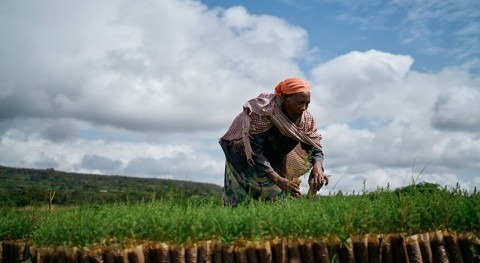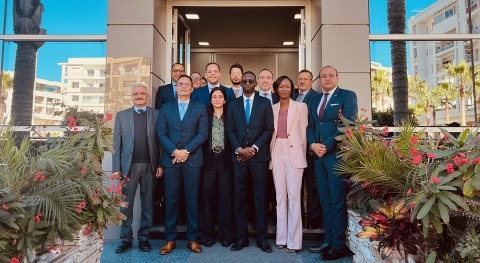The Board of Directors of the African Development Bank Group has approved financing of over $18 million for Mauritania to launch the "3R-Water" project, which aims to improve access to water and sanitation in rural regions affected by water scarcity and climate change impacts.
Co-financed by the Mauritanian government at 12 percent of its total cost, which exceeds $20 million, the project will also benefit from technical assistance from the Africa Adaptation Acceleration Program – a partnership between the Bank and the Global Center on Adaptation (GCA) – to enhance the climate resilience of investments. It marks a significant advancement for integrated water resource management in an increasingly fragile Sahelian context.
Implemented in the Brakna, Tagant, and Adrar regions, the project will support the provision of climate-resilient infrastructure for drinking water, agriculture, and livestock. It will directly benefit more than 450,000 people, the majority of whom are women and youth.
"The 3R-Water project is much more than an infrastructure project; it is a strategic lever to improve living conditions, prevent tensions related to resource scarcity, and promote social cohesion in rural areas," said Ousseynou Guène, the Bank's Regional Division Manager.
The project comprises four main action areas:
- Equitable access to water, with the construction and rehabilitation of solar-powered drinking water supply systems, and the installation of twenty pastoral stations for livestock watering.
- Improved sanitation, with the construction of latrine blocks in 124 schools and 23 health centers, and the implementation of community hygiene programs.
- Strengthened governance through the development of a program-based budget for the Ministry of Hydraulics, and the promotion of female employment in water service management.
- Project management including the establishment of a rigorous monitoring and evaluation system and compliance with environmental and social standards.
The project aligns with Mauritania's National Strategy for Sustainable Access to Water and Sanitation (SNADEA), while contributing to the United Nations Sustainable Development Goals (SDGs) and the African Union's Agenda 2063. It builds on lessons learned from projects previously implemented with Bank support, including the National Integrated Water Sector Project (PNISER) and the Project to Improve Climate Resilience of Water Sector Investments through Appropriate Climate Adaptation Activities for Pastoral and Forest Resources in Southern Mauritania (REVUWI).


















